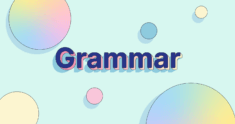
The correct choice between was and were in an if clause depends on whether you’re using an unreal conditional sentence, also known as a hypothetical sentence.
But how do you know if you’re dealing with an unreal conditional sentence? Choosing between was and were in conditional if clauses is a confusing area in English grammar, so we want to clear things up with this guide. Below, we explain everything you need to know, but first, let’s examine how an if clause works in conditional sentences.
What is the if clause in conditional sentences?
Before you understand whether to use was or were in an if clause, you must understand what conditional sentences are and how they use if clauses.
Basically, conditional sentences use a cause-and-effect format. If something happens, something else will also happen.
If it rains today, practice will be canceled.
Conditional sentences have at least two clauses: the condition and the consequence. The condition is usually represented by an if clause, a clause beginning with the word if, and sometimes by a when clause.
If we leave now, we can still make the movie on time.
When I go apple-picking, I wear an apron.
The condition does not need to come first in the sentence, and if the if clause or when clause comes second, no comma is necessary.
We can eat at seven if I start cooking now.
There are four types of conditional sentences in English, which you can learn about here. But they can be confusing, so to keep things simple, we’ll divide them into two groups: real and unreal.
Real conditional vs. unreal conditional sentences
As you can imagine, real conditional sentences represent events that have already happened or are likely to happen.
If I’m tired, I take a little nap.
I’ll eat a snack if I get hungry.
When I go to the zoo, I visit the big cats first.
Likewise, unreal conditional sentences represent events that haven’t happened and are unlikely or impossible.
If I won the lottery, I would buy my mom a mansion.
We would have helped you if you had asked.
If my phone were better, I could be famous on TikTok.
An easy way to tell real and unreal conditional sentences apart is by remembering that real conditional sentences use will, while unreal conditional sentences use would or could.
If you still can’t distinguish real and unreal conditional sentences by context, another quick trick is to replace if with when. If the meaning changes, it’s an unreal conditional sentence.
If the meaning does not change, it’s a real conditional sentence.
Let’s try it with the example sentences above.
If I’m tired, I take a little nap.
When I’m tired, I take a little nap.
Here, the meaning does not change whether we use if or when. That means it’s a real conditional sentence.
If I won the lottery, I would buy my mom a mansion.
When I won the lottery, I would buy my mom a mansion. (incorrect)
Here, the meaning does change, so it’s an unreal conditional sentence. Saying “when I won the lottery” suggests that it already happened, whereas “if I won the lottery” is strictly hypothetical.
It’s also important to note that when and would or could do not go together. The question of whether to use will or would in an if clause is another confusing topic, but the short answer is that will is better for real conditional sentences (especially paired with when) and would or could are better for unreal conditional sentences.
But what does real and unreal conditional sentences have to do with whether to use was or were? As we explain below, once you understand the difference between real and unreal conditional sentences, choosing between was and were is easy.
When should you use was or were in an if clause
If you want to use the verb be in an if clause, do you use was or were? This is a common question in English grammar.
In the simple past tense, the verb be is conjugated into either was or were, depending on the subject’s number and person. First-person singular and third-person singular subjects use was, and all others use were.
I was always energetic as a child.
Toronto was not this expensive twenty years ago.
Last year you were not ready for calculus.
The 1927 Yankees were a talented bunch.
However, the rules change for some if clauses. When using be in an if clause for an unreal conditional sentence, always conjugate it as were, no matter what the subject is. Even if the subject is first-person singular (I) or third-person singular (he, she, or it), still use were with an if clause in unreal conditional sentences.
If I were a rich man, I’d buy a big, tall house with rooms by the dozen.
He would have more friends if he were nicer.
Real conditional sentences still use was and were normally.
When I was younger, I went out more.
To help you understand when to use was or were in if clauses, we’ve included some examples below. Keep these examples in mind when writing and proofreading.
Examples of when to use was
If I was wrong, I’ll make up for it.
We never had this problem when the old boss was in charge.
The news anchor will mention if she was elected.
If he was lying, I didn’t catch it.
Examples of when to use were
If I were a spy, you’d know.
If Superman were here, he would help us.
She would prefer it if she were the one on vacation.
I’d stop talking if I were you.
Using was or were with an if clause or conditional FAQs
What is the if clause or conditional?
Conditional sentences are sentences written in a cause-and-effect format. In conditional sentences, the if clause (or sometimes a when clause) sets up the condition, and a second clause shows the consequences: “If it rains, I’ll get wet.”
What are the rules for using was or were with an if clause in a conditional sentence?
When using the verb be with an if clause in real conditional sentences (events that already happened or are likely to happen), use was and were normally. When using be with an if clause in unreal conditional sentences (hypothetical events that have not happened or are unlikely), always use were no matter what the subject is.





